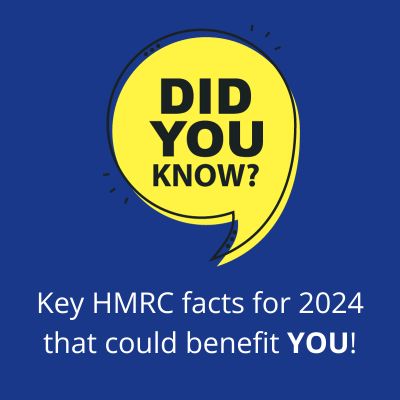How Much Should I Pay An Apprentice?
Do you employ an apprentice or are you looking to employ one? If so, you need to make sure you are meeting your legal obligations and the potential cost of getting it wrong.
Let’s start by covering some basic terminology that is fundamental to the paying of apprentices.
Minimum Wage Basics & Pay Reference Periods
Minimum wage legislation requires that workers must be paid at least the minimum wage for all the time worked in each pay reference period. A pay reference period is a period of time that is less than a calendar month – so weekly, fortnightly, or four-weekly. Failure to pay minimum wage for all the time worked over the course of a single pay reference period means that there has been an underpayment.
For workers paid by the hour, there is no ability to average pay across different reference periods to demonstrate that minimum wage has been paid. So if a worker has been underpaid in one pay reference period they will remain underpaid for that particular pay period.
National Minimum Wage (NMW) Basic Rates
There are currently five minimum wage rates, but this will go down to four as of 1st April 2024. The National Living Wage is the term for the highest rate of minimum wage payable.
The National Living Wage/National Minimum Wage increases from April 2024 are:
- For 21 years and over – £11.44 from £10.18
- For 18-20 year-olds – £8.60 from £7.49
- For under 18s – £6.40 from £5.28
- For apprentices – £6.40 from £5.28
You must pay an apprentice the minimum wage rate if they are aged 19 or over and have completed their first year. For example, a 30-year-old apprentice can be paid an apprentice rate for the first year but after their first year is completed, they must be paid the National Living Wage.
The minimum wage is more than a pay rate, it is a calculation. There are many tripping points that can push an employer into an underpayment situation, so it is important to review your working practices to get things right from the start.
Read more on historic and current minimum wage rates on gov.uk
How does National Minimum Wage apply to apprentices?
A worker must be a genuine apprentice. If they are not a genuine apprentice, they must be paid the minimum wage for their age.
An apprentice is a worker who combines working with studying to gain skills and knowledge. There must be some form of agreement and a training plan in place with clearly defined timescales and skills to be learned or developed. Structured training must be given with the purpose of equipping the apprentice with a skill, a profession, or a trade which must be carried out via work-based training or a course of study. A worker is unlikely to be considered an apprentice if the sole purpose of their training is to perform a single, specific job.
What employment contract should an apprentice have?
To qualify for the apprentice minimum wage rate, they must be employed on an apprenticeship scheme or engaged under a contract of apprenticeship. This normally falls under three categories:
1. Statutory Apprenticeship Agreements
- Apprenticeship agreement tied into an apprenticeship framework in England or Wales.
- Must include a statement of the skill, trade or occupation that the apprentice is being trained for.
- Must last for a period of at least 12 months.
- Must include at least 20% off-the-job training, which must be paid.
2. Contracts of Apprenticeship
- May include a statement setting out the rights and obligations of the employer and the apprentice.
- Should specify what training is to be provided and to what level.
- The length of the apprenticeship.
- The pay rates.
- Should not be tied to a single job and should lead to transferable skills.
- Do not have to be written – they can be verbally agreed (although it is always best practice to have a contract in writing).
3. Treated as Employed under a Contract of Apprenticeship
The qualifying arrangements are different in each part of the UK.
In England, the relevant arrangements are known as:
- Apprenticeships
- Advanced Apprenticeships
- Intermediate Level Apprenticeships
- Advance Level Apprenticeships
- Trailblazer Apprenticeships
In Scotland, the relevant arrangements are known as:
- Modern Apprenticeships
In Northern Ireland, the relevant arrangements are known as:
- Apprenticeships NI
In Wales, the relevant arrangements are known as:
- Foundation Apprenticeships
- Apprenticeships
- Higher Apprenticeships
Apprenticeships must last for at least a year and up to five years depending on the level at which the apprentice is studying towards.
The main purpose of a Contract of Apprenticeship is the teaching of skills required. In contrast to this, the main purpose of a contract of employment is to undertake work. In the event of any dispute, it will ultimately be up to the courts or tribunals to decide if a worker is an apprentice or not.
It is important that apprentice rates only apply to genuine apprentices and that if the conditions aren’t adhered to then it is likely that they will be considered ‘a worker’ meaning the minimum wage needs to be met.
Common Mistakes that Employers Make
- Paying apprentice rates incorrectly when they are entitled to a higher rate – ensure you have checks in place to know when the first-year of the apprenticeship is up and your employee moves up to the National Minimum Wage.
- Paying the apprentice rate at the wrong time – If an employer takes on an apprentice in June but their apprenticeship doesn’t start until September, then between June and September they need to be paid the age-appropriate National Minimum Wage.
- Not paying for all the time spent training or studying – any required study or training counts as ‘working time’.
- Unpaid working time – a worker is entitled to be paid for all the time they are working. This includes travel time whilst at work.
- Payments and deductions – deductions you make from your employee’s wages for uniforms, tools, goods and services associated with the job are likely to reduce their pay for minimum wage purposes which will result in underpayment. Similarly, if a deduction is made for an employer’s own ‘use and benefit’, for example, meals or transport provided by the employer, this will also result in an underpayment.
National Minimum Wage Enforcement
HMRC can issue a notice of underpayment which sets out the arrears to be paid together with a financial penalty for the employer. This is imposed at 200% of the total underpayment and a maximum penalty of £20,000 per worker. For arrears over £500 then the employer will be named in a government press release, and it becomes a matter of public record. This means the media and local community could get hold of this information. This is very costly for the employer in terms of money and reputation.
If underpayment has taken place, you can resolve the situation by immediately:
- Paying any underpaid amounts to all affected workers (apply tax & NI to the amounts where relevant).
- Ensuring arrears of pay are paid at current minimum wage rates.
- Making all reasonable attempts to contact all previous workers who have been underpaid.
You can voluntarily declare you have underpaid by filling in a declaration form requested from: voluntarydeclaration.nmw@hmrc.gov.uk. By doing this you can avoid being named by the Departments for Business and Trade (DBT) and you won’t receive a financial penalty.
Find out more HMRC facts for 2024 which you might not be aware of.





